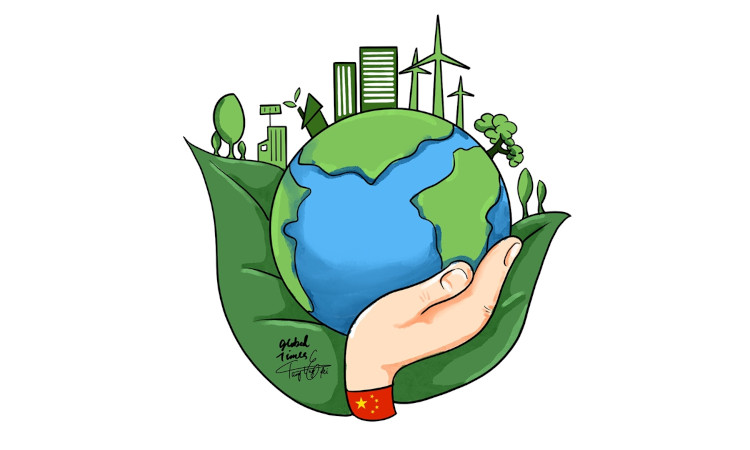In this third part of a wide-ranging discussion on the Chinese Revolution, Harpal Brar and Caleb Maupin look at the foundations that were laid for China’s future success during the 30 years following the birth of New China from 1949 under the leadership of the CPVC and Chairman Mao Zedong.
*****
Continuing directly on from the first and second parts of their discussion on the Chinese Revolution, our commentators look at the great leap forward that China was able to take after the founding of New China on 1 October 1949.
China had suffered a century of humiliation at the hands of all the imperialist powers, beginning with British imperialism’s first opium war (launched in 1839), continuing through the carve-up of the country between the major western powers at the turn of the 20th century and culminating in the large-scale invasion and viciously brutal occupation by imperial Japan (from 1931 onwards).
The revolutionary government eradicated all traces and influence of imperialism in the country – a huge feat that was vital for the independent development of the country. Following this, they went on to eliminate all vestiges of feudalism, the social system that had been entrenched on Chinese soil for millennia, and which was an absolute bar to the progress of society and to the prosperity of the masses.
The communist government also conducted a campaign to wipe out banditry and lawlessness, which had been a scourge on the people for many years.
The war-torn economy was restored to its pre-war levels of output and the foundations soon laid for the development of a fully-planned socialist economy, with help from Soviet advisors and technical specialists. The first five-year plan, implemented in the period 1953-57 achieved miracles, founding 161 new large-scale industrial enterprises, developing a heavy industrial base and collectivising agriculture.
At the same time, millions of Chinese volunteers fought in neighbouring Korea to fend off the genocidal attack that had been launched against the Korean revolution, but which was clearly aimed at the entire socialist camp. Making a tremendous contribution to US imperialism’s first-ever military defeat, the Chinese soldiers fought under the slogan: ‘Oppose US aggression, defend Korea and safeguard the motherland.’
Epic as this contribution was, it was not New China’s only act of internationalism. The new socialist government gave help to liberation movements all over the world, which it had done much to inspire with its own tremendous successes against imperialism, bringing socialism into the heart of Asia and the oppressed world.
Caleb points out that for those of us who grew up at a later time, it is hard to realise just how high the prestige of socialism was during the early postwar period. A wave of converts to Marxism were made amongst US prisoners of war in Korea, who publicly apologised for the part they had played in perpetrating imperialist war crimes and announced their belief that the USA was in the wrong for waging its aggressive war against.
The US ruling class was shocked by this and invented the term ‘brainwashing’ to try to reassure its own people that there was no substance to these statements – that the awakening to reality of so many US soldiers had no significance and need not be taken seriously.
While the Korean war was ongoing, another war was forced on the new Chinese state in Tibet, which the imperialists tried very hard to break away from China while the central state was still young and weak. The forces the imperialists backed in Tibet were upholders of Tibetan serfdom, and half a million people died in the course of the war to defeat imperialism and its feudal relic allies.
The western PR spin that presents Buddhism generally and Tibet’s Dalai Lama in particular (living today in India at the expense of the CIA) as the epitome of peace and dignity aims to obliterate the truth – that the regime presided over by the Dalai Lama when the monks ruled Tibet was one of vicious slavery in which the mass of the people were treated worse than animals, with no access to the most basic education or healthcare.
Anna Louise Strong’s eyewitness account of this period is an important lesson in the realities of feudalism and the anti-feudal revolution in China – and an excellent example of the way in which the people of the west are manipulated with false narratives to side with our own exploiters.
This conversation was recorded on 22 July 2022.














